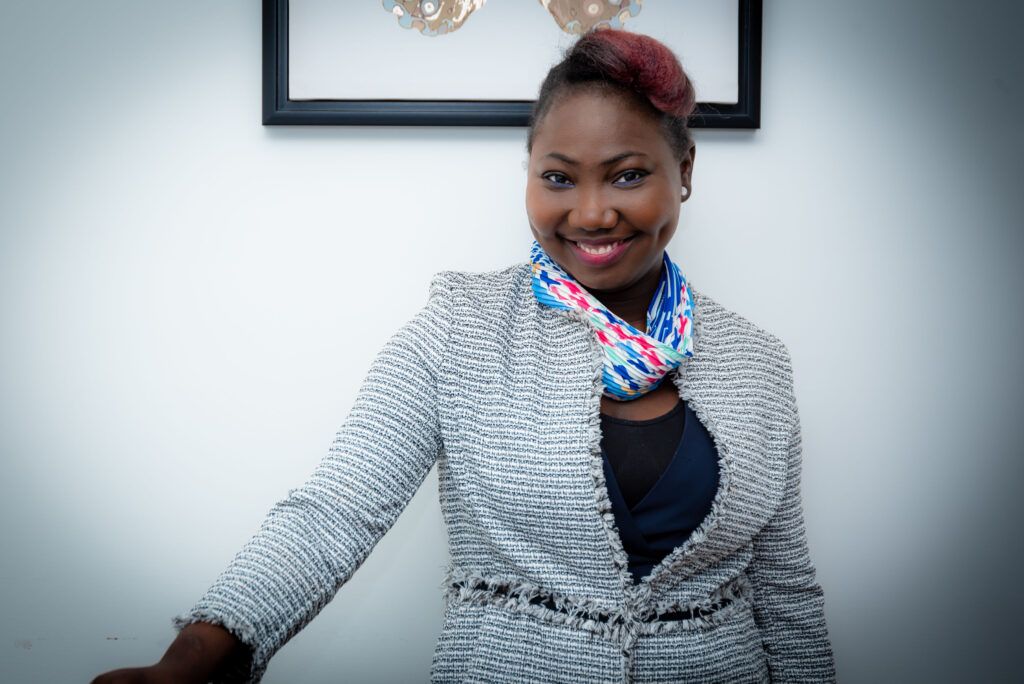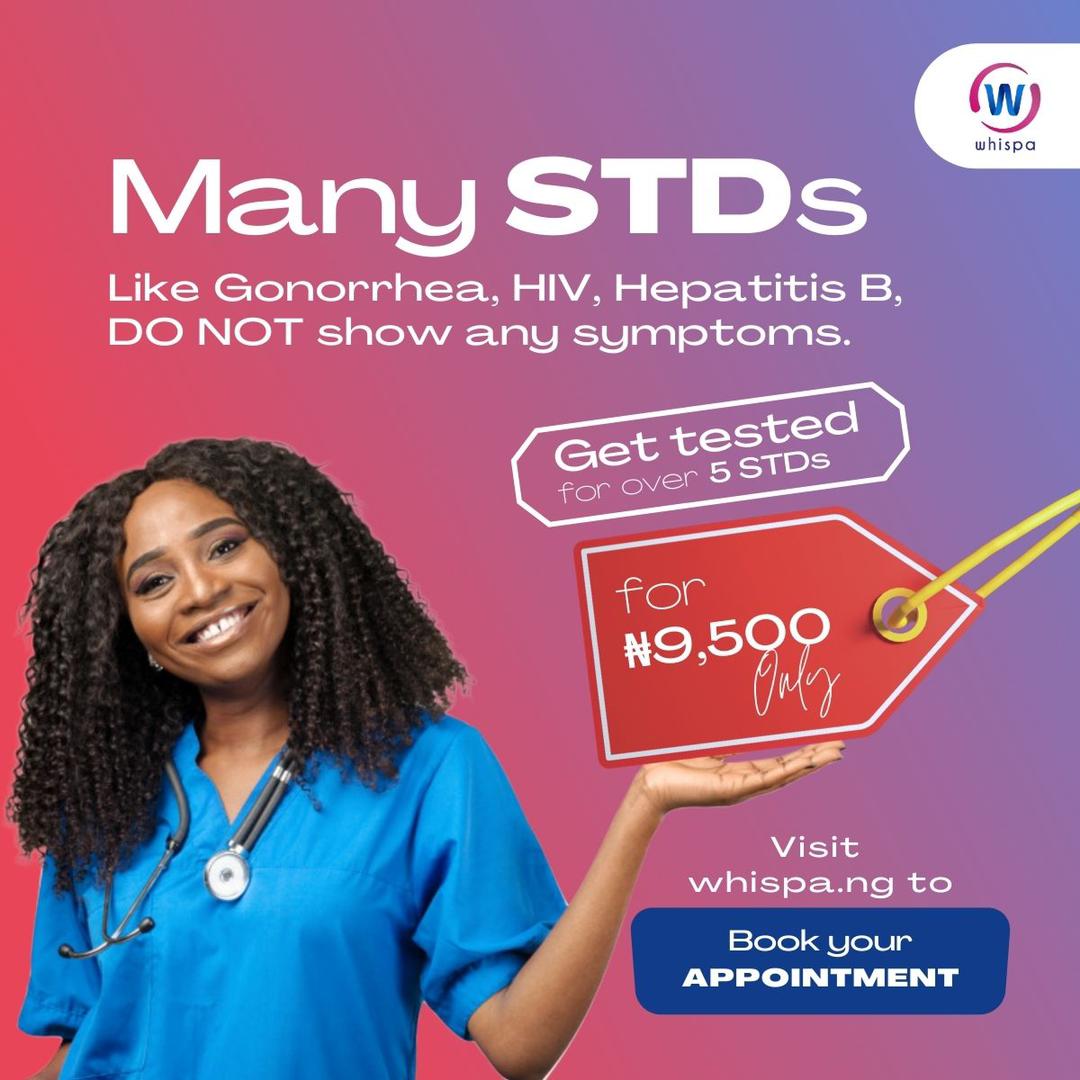How Whispa Health is creating safe, stigma-free access to sexual health services for Africans
While treating sex as a taboo subject has not stopped Nigerians from doing the deed, it has created a culture where sexual health and education, by extension, are grossly ignored.

Whispa Health is a startup that allows Africans to access stigma-free sexual health information, products, and services from the privacy of their mobile phones.
Mention sex in a room full of Nigerians, and everyone will go silent. I should know; I have been in a couple of those rooms. First, there is silence, then side giggles and murmurs followed by the inevitable “Ah! You people are having sex?”’
However, the conservative attitude of many Nigerians towards discussions about sex is a stark contrast to how much sex they are having.
In a data set collected in Ado-Ekiti, 73.9% of the respondents claimed to be sexually active. In another survey conducted by The Conversation, 80% of respondents said they were “sexually experienced.”
Nigerians aren’t just having sex, though. They are having sex with multiple partners. 81% of male respondents in another study admitted to having multiple sexual partners.
While treating sex as a taboo subject has not stopped Nigerians from doing the deed, it has created a culture where sexual health and education, by extension, are grossly ignored.
The home - where sexual education should naturally happen first is instead the first place young Africans encounter it as a taboo subject. The summary of sex-ed for most young Africans is usually “don’t get pregnant,” if you’re female, or “don’t get someone pregnant,” if you’re male.
Take a look at this opinion poll from 2019:
Generally it is assumed that Sex education is a topic most Nigerian/African parents shy away from.
— Odun of The Health City (@the_odunola) July 16, 2019
So I'm conducting a poll to see if this opinion is true.
Kindly RT!
At what age did your parents have "the talk" (sex education) with you?#YSMANG #letthemknowcse
While the aversion to discussing sex in African homes is puzzling, the constant harping on “not getting pregnant” does have some merit. Having an unplanned child can derail the lives of young Africans, especially young females in significant ways. More specifically, unintended pregnancies can lead to fewer educational and development opportunities for women.
Morenike Fajemisin, the founder and CEO of Whispa Health—a Nigerian startup focused on sexual health, knows about the consequences of unintended pregnancies more than most people. According to her, Whispa was born out of a combination of her professional experiences and personal story.
“I have a cousin who got pregnant as a teen. She was very intelligent. I always say she could have been me. After she got pregnant, she could no longer go to school. Her life took a different turn. She couldn't go to school or continue her education,” Morenike tells Benjamindada.com.

Despite being preventable, stories like that of Morenike’s cousin are still rather common across Africa today. While there has been significant improvement in sexual health practices, proper sexual health advice is still scarce.
Even when it is present, the advice may come across as more judgemental than helpful. Morenike has another story that perfectly captures this.
At 25, because of the nature of her job as a pharmacist, she needed to visit a local hospital. Unfortunately for Morenike, it was family planning day.
A young lady at the hospital on family planning day? That sounded like the perfect recipe for a dressing down, at least to the attendant nurse.
“She didn’t ask what I came for, she just assumed I was at the hospital for contraceptives since it was family planning day. She tore into me, telling me to go and concentrate on my books. She went on about how I was too young to be sleeping with men. I just let her finish her speech.”
After the nurse finished with her moral instructions, Morenike says she made sure to give her a piece of her mind. She was not only surprised by the unwarranted assumption that she was at the hospital for contraceptives but also the treatment she would have gotten if that was what she came for. Eventually, as Morenike says, the nurse backtracked and tried to apologise for the poor treatment.
The behaviour of the nurse is not an exception. Morenike had been in trainings where nurses were taught to be more empathetic towards people in need of sexual health help. Those trainings rarely resulted in better treatment.
“That’s the reality for a lot of young people when they’re trying to get sexual healthcare help, whether it is preventing pregnancy or talking about any part of their lives that indicates they are sexually active,” Morenike added.
Whispa comes at a time young Africans are looking for sexual health advice, albeit on the first page of google. While the internet is a good resource for learning the rudiments of sexual health, it is notorious for leading people into self-diagnosis.
On Whispa Health, users can speak with a trained healthcare professional about their sexual health issues for just N250/session ($0.66). “We pick like-minded people to join our team because we offer user-friendly and stigma-free access to sexual health,” Morenike says about the recruitment process.
Users can also order products, including condoms, lubricants, HIV test kits, and other self-tests. According to the Whispa Health team, all kits used are NAFDAC approved and one is US-FDA approved. The tests are affordable and easy to perform at home; the results can be ready in a few minutes and have high accuracy. After tests, users can return to the app to speak with a healthcare professional.

Users also have options on whether they want to do bloodless tests or not. Perhaps, most importantly, the test kits arrive in a short while. People around Lagos—where Whispa Health’s headquarters is located, can get their deliveries within 24 hours. Residents in other states may have to wait for up to 5 days depending on the distance.
Another thing Whispa has added to its offering is booking physical appointments for contraceptives and laboratory STD tests. In March, the company launched a feature to allow users to book cervical cancer screening tests. Cervical cancer is one of the most common cancers in women but is highly treatable when found early. Whispa users can also book cervical cancer prevention vaccines via the app.
Although Whispa is still very young, it has started attracting significant traction. According to Morenike, the mobile application, which is available on Google Play and the iOS app store, has received over 16,000 downloads.
It is not just users that are looking Whispa’s way either. In March 2021, the company emerged as one of seven (7) winners of the $2 million Jua fund. The Jua fund, which Adam Molai, a Zimbabwean industrialist, runs, provides early-stage startups with non-equity assistance.
Before the investment from the Jua fund, the company had been self-funded and relied on other smaller grants to grow its business. However, now that it is poised to receive some boost, it is preparing to accelerate growth.
Speaking on future plans, Morenike had this to say, “ We are constantly expanding and identifying new products and services that fits our portfolio. Our goal is to be a complete one stop solution when it comes to sexual and reproductive health. So that all people who need help really need to do is download the app and whisper.”







Comments ()